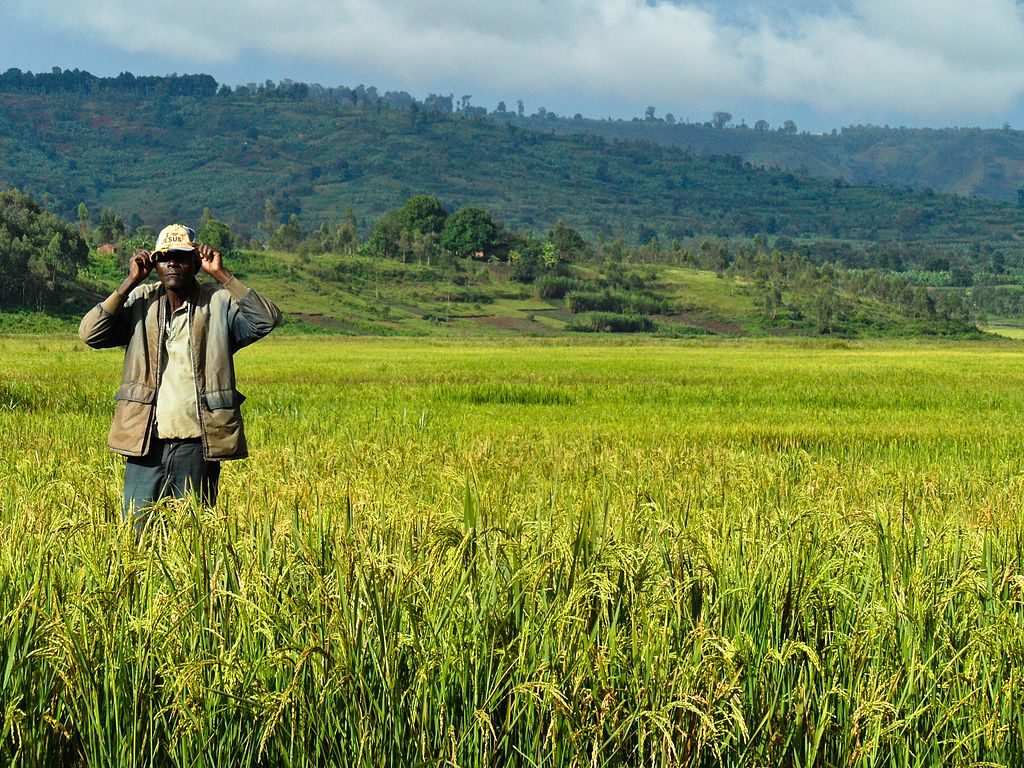10 THINGS TO KNOW BEFORE ACQUIRING LAND FOR AGRICULTURAL PURPOSES IN NIGERIA
By Uwem Bassey
 10 THINGS TO KNOW BEFORE ACQUIRING LAND FOR AGRICULTURAL PURPOSES IN NIGERIA
10 THINGS TO KNOW BEFORE ACQUIRING LAND FOR AGRICULTURAL PURPOSES IN NIGERIA
Most entrepreneurs are faced with the problem of sourcing for land for their agricultural pursuits mostly because they don’t have any idea how to go about land acquisition. And with rampant fraudulent activities in the country concerning land business, it is easy to see how this could pose a problem for startup entrepreneurs with little or no experience whatsoever in land acquisition. Agriculture business is generally capital intensive, and land acquisition contributes largely to this, so you want to be very careful before sourcing for and acquiring land. The purpose of this article is to help guide you on certain areas you need to research and thoroughly consider before acquiring land for agricultural business in Nigeria.
Prepared here, in no particular order are the factors to be considered when setting out to acquire farmland for your commercial farming.
1. Why do you want to buy a farm land? Buying a property is a long term investment, and as such you need to have an understanding of why you really need to buy the land at all. How does the decision to buy the land relate to your business plan? Is it a business decision or an emotional one? Research your expected yield for the intended farming business to determine if the purchase fits into your plans. Does the potential returns meet your goals and objectives? Do not buy land on impulse. Sometimes with thorough research, you may discover that it could be financially wiser to lease the property as opposed to making outright purchase. Leasing may actually provide you free cash to invest into other aspects of the business which require readily available cash. Land is an illiquid asset and using the bulk of your cash to buy land may affect your business’s liquidity and could possibly affect your ability to meet all of your other financial commitments as they come.
2. Finances. Considering the needed investments and expected expenditures, and also the type of farming business you intend for the land will help you determine if buying the land is the best use of your cash. Are you financially stable enough to handle this kind of financial commitment? If so, will you be able to service any debts that may arise along the way? Of course at this stage of your business, you must have already developed a business plan, so confirm if your financial investments are in line with your business plan before you buy or lease the land.
3. How much land are you acquiring? This usually poses a problem for entrepreneurs and can cause a lot of confusion for a novice. You must make sure you know exactly how much land you are actually buying. Make sure it corresponds with what is on paper. Know exactly what you’re getting before closing any sales on the property. Find out the current market value of similar lands. Find out if there are comparable sales available. It is your duty to ensure that the size of the land you are buying is accurate and corresponds to what the land owner claims. To check for land size accuracy before making purchase, you should list the service of a surveyor or an expert in the building industry. The surveyor’s duty is to check or measure the land to make sure that what is stated on the survey plan is accurate, or that what the land owner claims is a fact. Also, in cases where there are no available survey plans, the surveyor will also help produce a survey plan once you’ve purchased the land.
4. Soil type. For the agricultural venture you are intending to run, you will need to carefully consider the soil condition of the land you are acquiring. What is the capability of the soil you are buying and how will it impact your agricultural activities? Soil type is paramount to acquiring land for agricultural purposes. Conduct research on the best soil type that can support your farming activities or any other agricultural activities. Know the history of annual crop rotations, if any, and prevalent pest conditions. It is important to know what the soil limitations may be before acquiring the land. Running proper quality soil assessment on the land idea is also a wise idea, though expensive. Get every necessary information relating to the soil classification, its type and drainage class. If you are interested in organic production, it is advisable to run tests on the land for residues and other heavy metals that may inhibit your productivity and also your ability to grow organically.
 THINGS TO KNOW BEFORE ACQUIRING LAND FOR AGRICULTURAL PURPOSES IN NIGERIA.
THINGS TO KNOW BEFORE ACQUIRING LAND FOR AGRICULTURAL PURPOSES IN NIGERIA.
5. Water source. It is also very important to ensure that there is a source of water supply available before acquiring the land. Adequate water supply is an essential factor to be considered for agricultural activities of every kind. Water is important for whatever kind of farming you plan to engage in, whether its crop farming or livestock farming. You need to check for availability of water around the land. How accessible is the source of water supply? How easy or difficult is it for nearby farmers to get water? Do they dig/ drill for their own water source? If so, will the average cost of this be affordable for you? Ensure that your source of water supply is such that you can control. You must be in control of the water.
 THINGS TO KNOW BEFORE ACQUIRING LAND FOR AGRICULTURAL PURPOSES IN NIGERIA
THINGS TO KNOW BEFORE ACQUIRING LAND FOR AGRICULTURAL PURPOSES IN NIGERIA
6. Climatic conditions. You will need to conduct thorough research to ascertain if the land area has suitable climatic conditions before acquiring the land. The last thing you want to do is buy an unfavourable climate and environmental risks. Make sure that the climatic conditions of the area is favourable for whatever agricultural activity you intend to establish there. Ask about the flooding pattern of the land area, drought or any other condition that could affect the soil. Find out averages for yearly humidity and temperature.
7. Property zoning. Find out how the property is zoned. Will your intended agricultural activity interfere with the existing zoning restrictions? Are there restrictions to the use of the property? Does the intended purpose for the land confirm or conflict with existing rural and urban development laws and regulations of that area? Is the property located on or near a high tension power plant? How will this impact your productivity? Take all these factors into consideration before acquiring land for agricultural use.
8. Duration of farming. How long will you actively farm? Make sure that your financing plan matches with the rest of your intended career as an active agricultural producer. Knowing how long you intend to use the land for your agricultural pursuits on the property will help you decide whether to purchase the land, and also guide you in choosing the type of land that will satisfy certain requirements. Acquisition of land for agriculture is an important decision. So, you need to cross all the t’s’ and dot all i’s’ before you proceed.
9. Entrance space. Entrance space to the property is another important factor to be considered before acquiring land. For instance, you may need to transport heavy equipments in and out of your farm, check for adequate entrance space and accessibility of the property to accommodate such activities. There have been lots of cases in Nigeria where farmers bought land without paying attention to accessibility of their properties only to discover later that the only way to access their land is through another person’s property! You must make sure you discuss and address the accessibility of the property with its owner before proceeding to acquire it. If there’s no access road to the property its a sign to simply back out immediately, or you make sure the land owner provides or creates one to avoid any challenging future situations for your business. Another thing to consider is that most times, there is entrance space available, but isn’t wide enough. This should also be discussed with the land owner for immediate rectification, otherwise, you are advised to steer clear.
10. Proximity to markets. Is the property you’re considering close to markets and major roads? Is there good road network in the area? Good road network will enhance easy access to the location of your farmland, so pay very good attention to this factor before acquiring the property. How accessible is the land from major road networks? Is the property close to local markets and other distribution channels? Your closeness to markets and good road networks should not be taken lightly. You want to ensure that traders can have easy access to your farm land and that you can get your farm produce out there with relative ease and minimal efforts and to market distribution channels.
Agriculture business is serious business and if you’re reading this, you probably feel the same way. There are so many other critical factors to put into consideration before acquiring land for agricultural use in Nigeria. These are but a few, did it help make you better informed on land acquisition for your agricultural business?
Hope this has helped contribute to your overall knowledge?
Related